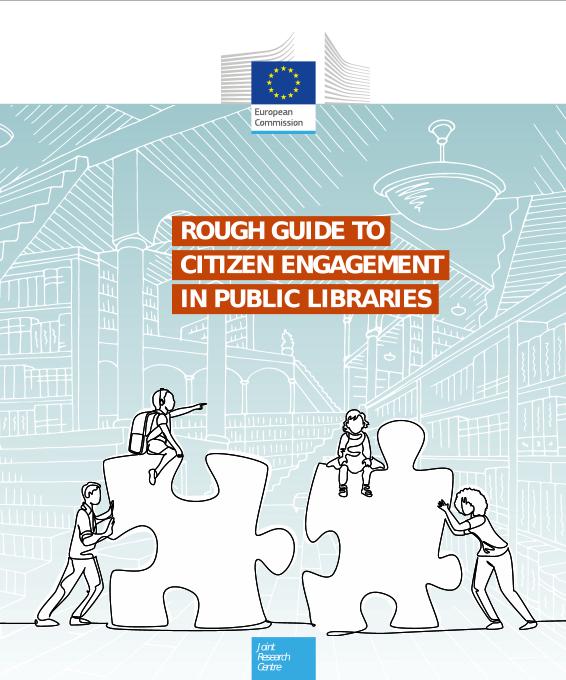Citizen engagement in public libraries
What comes to mind when you think of public libraries? Books – of course. But one also thinks of community, a place of belonging, a place for all members of society to come together. Public libraries are open to everybody – at their core, they are accessible and inclusive spaces.
Democratic processes have struggled historically with involving underrepresented groups and communities within civic activities. To address this, the European Commission has been searching for innovative ways and spaces to create connections and foster democratic participation. Rather than reinventing the wheel, the goal was to find existing spaces which had the potential to contribute to increasing citizen engagement. One of these were public libraries.
Within this context, PL2030 teamed up with the Joint Research Centre (JRC) to work on The European Commission’s Competence Centre on Participatory and Deliberative Democracy (CC-DEMOS)’s 2021 pilot project ‘Experiments of citizen engagement in public libraries’. This pilot complemented another ongoing project, BiodiverCities, which focused on engaging citizens in co-creation processes and touching on issues of urban green infrastructure and biodiversity depletion. Out of this pilot project came the publication ‘A Rough Guide to Citizen Engagement in Public Libraries’, which was co-authored by PL2030 in collaboration with the Lisbon Public Library Network. It provides a toolkit for how public libraries can become involved in citizen engagement processes.
Case studies
Many European public libraries have been already quite active in the way of engaging citizens and fostering participation. Through our network of public libraries across Europe – the Lighthouse Libraries – we collected case studies demonstrating the approaches, methodologies and tools used in citizen engagement activities in Europe.
Aarhus, Denmark
In Denmark, the City of Aarhus had ambitions to become a carbon-neutral by 2030. Wanting to involve citizens in shaping policies to meet this goal, a Citizens’ Assembly was organised with the support of the public library. Involving citizens brought two clear advantages: it gathered an understanding of the problems experienced in daily lives (“situated knowledge”) and fostered “a sense of citizen ownership” of these issues (p. 26). Out of the 10,000 citizens invited at random to take part, 24 of those who responded were chosen to participate. After four online meetings, the Citizens’ Assembly provided the city’s sustainability committee with 9 concrete recommendations for action on reducing CO2 emissions from private transportation. As the rough guide notes, it is crucial that Citizens’ Assemblies are well anchored in the policymaking process to ensure that citizens feel as though their participation within these activities are followed up on.
Cavriago, Italy
In Italy, the Multiplo library and cultural centre is at the heart of Cavriago’s community. The Multiplo’s strategic position within the community meant it was the perfect actor to enable the development of Cavriago’s cultural policies through citizen participation and “respond to an increasing demand for democracy and transparency” (p. 29). This participatory process – which involved over 150 members of the community through ‘marathon of ideas’ workshops – resulted in the co-creation of a 10-year strategic plan for the Multiplo, addressing 14 work fields identified throughout the process.
Lisbon, Portugal
When a former kindergarten in a historical Lisbon public garden began transforming into a new library centred around sustainability and biodiversity, the Lisbon Public Library Network decided to involve the community in the process. Through the BiodiverCities project, the Network organised several citizen engagement activities – which included a World Café, citizen lab and workshops – in order to include the local community in the creation of the The Estrela Garden library. The main objectives of this co-creation process were to identify the community’s needs and interests and empower folks within that community. As a result of these activities, curiosity about The Estrela Garden library spread at the local level, and the library coordinator was provided crucial information on the community’s expectations of the project. Additionally, participants continued collaborating on projects, such as a seed bank and memory mapping, after the participatory activities had finished.
Future of Europe for Public Libraries – what’s next?
Several of the case studies mentioned include public libraries involved in our ‘Future of Europe for Public Libraries (FEPL)’ project – which aims to support our network of public libraries engage with EU policy and initiatives touching upon the themes of the digital world, democracy, and sustainability. As part of the FEPL project, we will be meeting in Lisbon in October for our third camp – the democracy camp – with the Lighthouse Libraries. The first two camps in Ghent and Aarhus explored the digital and sustainability topics respectively.
Stay up to date on PL2030 activities and the FEPL project via our website, social media (Twitter, LinkedIn and Facebook), or by signing up to our newsletter.

